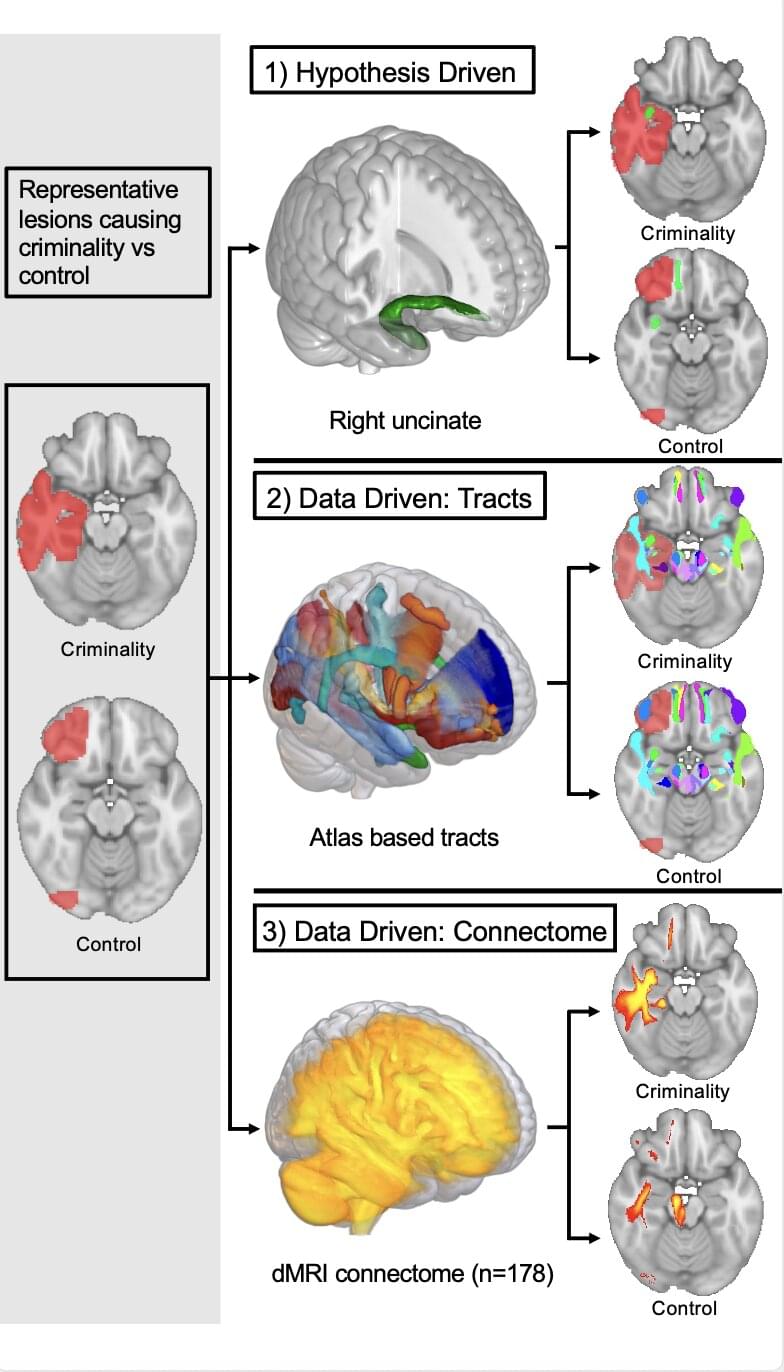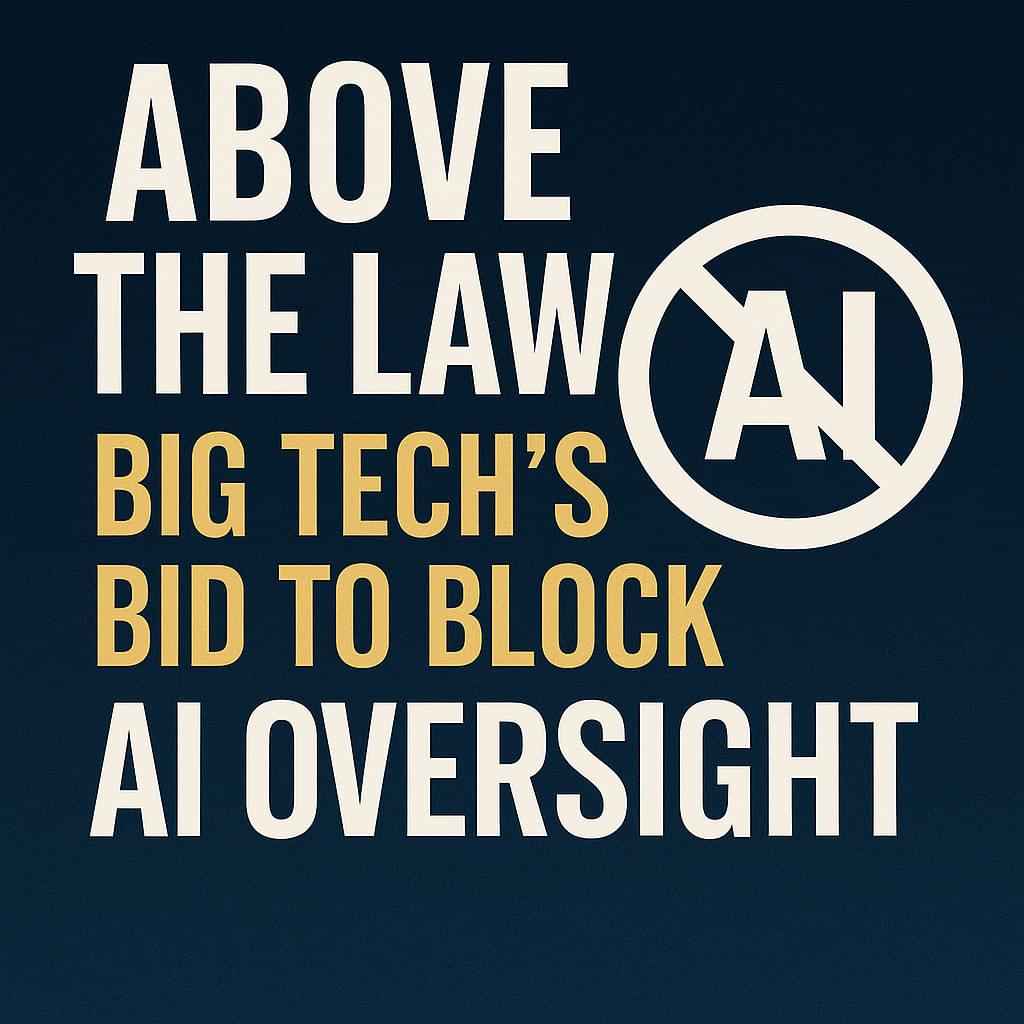America risks losing the global AI race to China due to restrictive copyright lawsuits and underutilized data, undermining national security and innovation while Beijing accelerates through state-backed access and legal leniency.



Over the past decades, some lawyers have started using brain imaging scans as evidence during criminal trials, to provide a possible explanation for the criminal behavior of defendants. This was justified by recent neuroscientific studies, which found that some people who commit crimes present differences in specific parts of the brain. Yet a key question remains: are these brain changes causal, compensatory or incidental to the behavior?
To answer this question, researchers at Brigham and Women’s Hospital, Harvard Medical School and other institutes in the U.S. analyzed the locations of brain injury temporally associated with a new onset of criminality.
They found evidence suggesting that lesions to a specific white matter tract could be causally implicated in the behavior of individuals who start committing crimes after injury.

The advance warning period is key for this sort of voluntary program, especially one counting on participation from hyperscale data centers with sensitive IT equipment worth billions, Kavulla said.
“This should not be the kind of demand response where you’re calling it with no notice and curtailing the customer straight off,” he said.

Unlock the future of energy! Discover how abundant thorium and advanced Small Modular Reactors (SMRs) could power our world and humanity’s pioneering Moon base, offering a safer, cleaner path to net-zero.
If you liked this video, please show it to a friend who hasn’t heard of us yet! Also, please leave a comment below. Thanks for watching!
🚀 New mind-blowing episodes every week!
Link to Best Telescopes at the website: https://apollo11space.com/best-telesc… website: https://apollo11space.com 🌠 Join our constellation of curious minds: Facebook: / apollo11space11 Pinterest:
/ tranquilitybase784 Instagram:
/ apollo11spacechannel X (Twitter):
/ apollo11space69 Reddit:
/ orbitingapollo Copyright Title 17, US Code (Sections 107–118 of the copyright law, Act 1976): This website uses all media for the purpose of review and commentary under the terms of fair use. All footage and images used belong to their respective companies. #thorium #materialscience #space.
My website: https://apollo11space.com.
🌠 Join our constellation of curious minds:

The threat actors behind the Qilin ransomware-as-a-service (RaaS) scheme are now offering legal counsel for affiliates to put more pressure on victims to pay up, as the cybercrime group intensifies its activity and tries to fill the void left by its rivals.
The new feature takes the form of a “Call Lawyer” feature on the affiliate panel, per Israeli cybersecurity company Cybereason.
The development represents a newfound resurgence of the e-crime group as once-popular ransomware groups like LockBit, Black Cat, RansomHub, Everest, and BlackLock have suffered abrupt cessations, operational failures, and defacements. The group, also tracked as Gold Feather and Water Galura, has been active since October 2022.

In the grand cosmology of Star Trek, the Prime Directive stands as both a legal doctrine and a quasi-religious tenet, the sacred cow of Federation ethics. It is the non-interference policy that governs Starfleet’s engagement with pre-warp civilizations, the bright line between enlightenment and colonial impulse. And yet, if one tilts their head and squints just a little, a glaring inconsistency emerges: UFOs. Our own real-world history teems with sightings, leaked military footage, close encounters of the caffeinated late-night internet variety — yet in the Star Trek universe, these are, at best, unacknowledged background noise. This omission, this gaping lacuna in Trek’s otherwise meticulous world-building, raises a disturbing implication: If the Prime Directive were real, then the galaxy is full of alien civilizations thumbing their ridged noses at it.
To be fair, Star Trek often operates under what scholars of narrative theory might call “selective realism.” It chooses which elements of contemporary history to incorporate and which to quietly ignore, much like the way a Klingon would selectively recount a battle story, omitting any unfortunate pratfalls. When the series does engage with Earth’s past, it prefers a grand mythos — World War III, the Eugenics Wars, Zephram Cochrane’s Phoenix breaking the warp barrier — rather than grappling with the more untidy fringes of historical record. And yet, our own era’s escalating catalog of unidentified aerial phenomena (UAPs, as the rebranding now insists) would seem to demand at least a passing acknowledgment. After all, a civilization governed by the Prime Directive would have had to enforce a strict policy of never being seen, yet our skies have been, apparently, a traffic jam of unidentified blips, metallic tic-tacs, and unexplained glowing orbs.
This contradiction has been largely unspoken in official Trek canon. The closest the franchise has come to addressing the issue is in Star Trek: First Contact (1996), where we see a Vulcan survey ship observing post-war Earth, waiting for Cochrane’s historic flight to justify first contact. But let’s consider the narrative implication here: If Vulcans were watching in 2063, were they also watching in 1963? If Cochrane’s flight was the green light for formal engagement, were the preceding decades a period of silent surveillance, with Romulan warbirds peeking through the ozone layer like celestial Peeping Toms?

Craters on the moon could hold over a trillion dollars’ worth of platinum and other precious metals deposited there by asteroids. That means lunar prospecting may be more economically viable than travelling to asteroids individually to mine them – but the legality of doing this on the moon remains unclear.
Jayanth Chennamangalam, an independent researcher in Vancouver, Canada, and his colleagues looked at whether there may be commercial quantities of platinum group metals (platinum, palladium, rhodium, ruthenium, iridium and osmium) that were left behind by asteroids hitting the lunar surface.
Image: NASA’s Scientific Visualization Studio
Mining craters on the moon could be more practical than extracting precious metals from asteroids, but it might also introduce new legal difficulties.
Fewer hours. Same pay. Possible approach to the Economic Singularity?
In 2019, Iceland made headlines by becoming one of the first countries in the world to adopt the four-day working week, not through a general law, but through agreements allowing workers to negotiate shorter weeks or reduced hours. Five years on, the results are indisputable.
The Icelandic experiment began in 2015 with a pilot phase involving around 2,500 employees, or just over 1% of the country’s working population. Following the resounding success of this initiative, with 86% of the employees involved expressing their support, the project was formalised in 2019. Today, almost 90% of Icelandic workers benefit from a reduced working week of 36 hours, compared with 40 hours previously, with no loss of pay.
Initial concerns about the four-day week were widespread, both in Iceland and elsewhere in the world. There were fears of a drop in productivity, increased costs for businesses and difficulties in adapting to maintain service levels. However, the Icelandic experience has swept these fears under the carpet.
